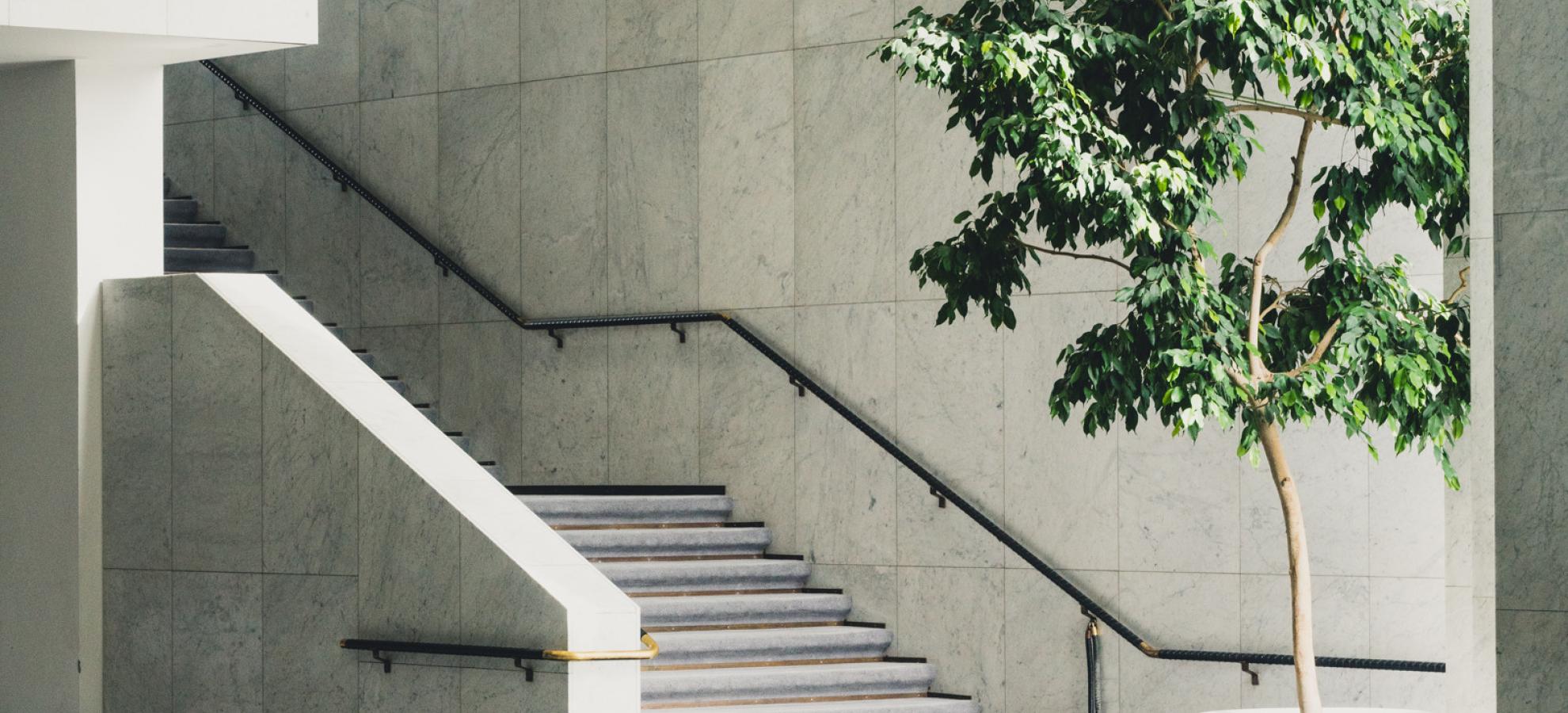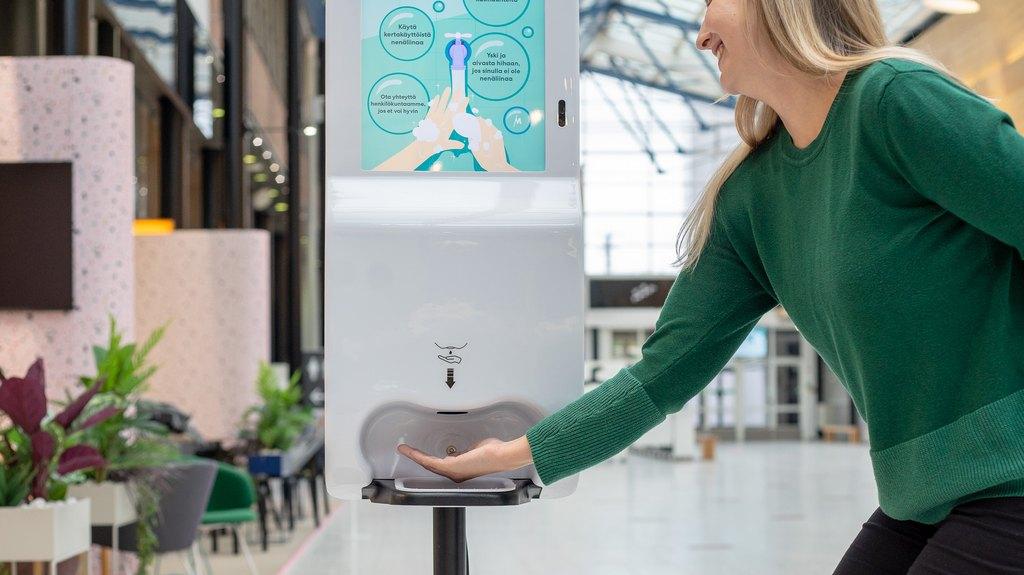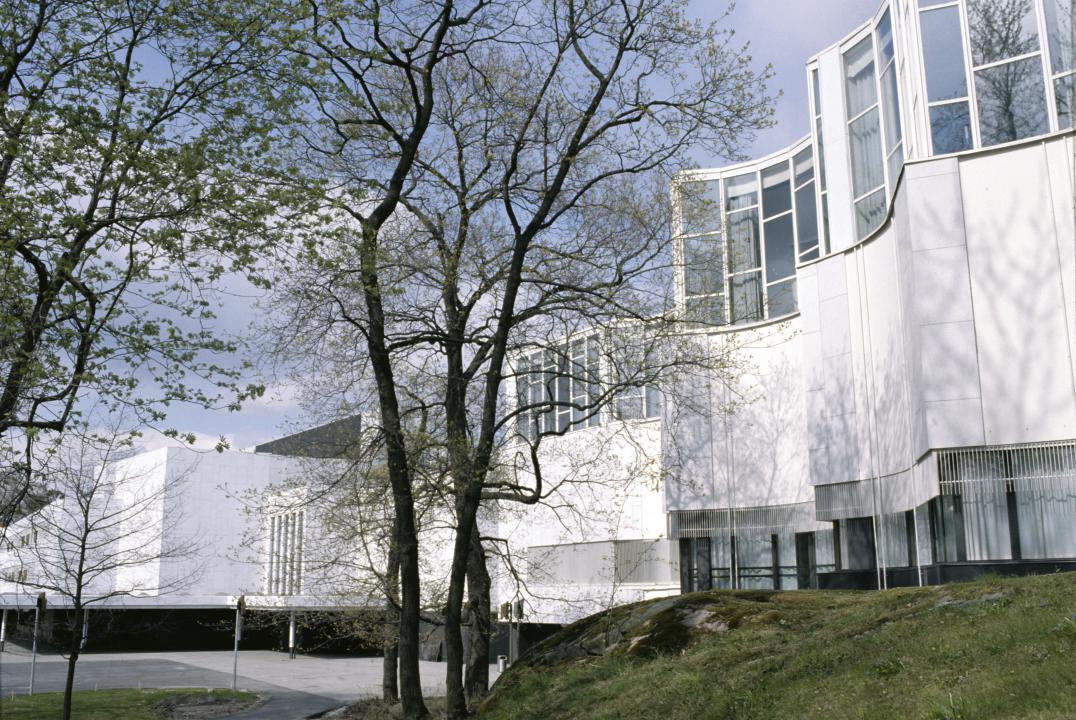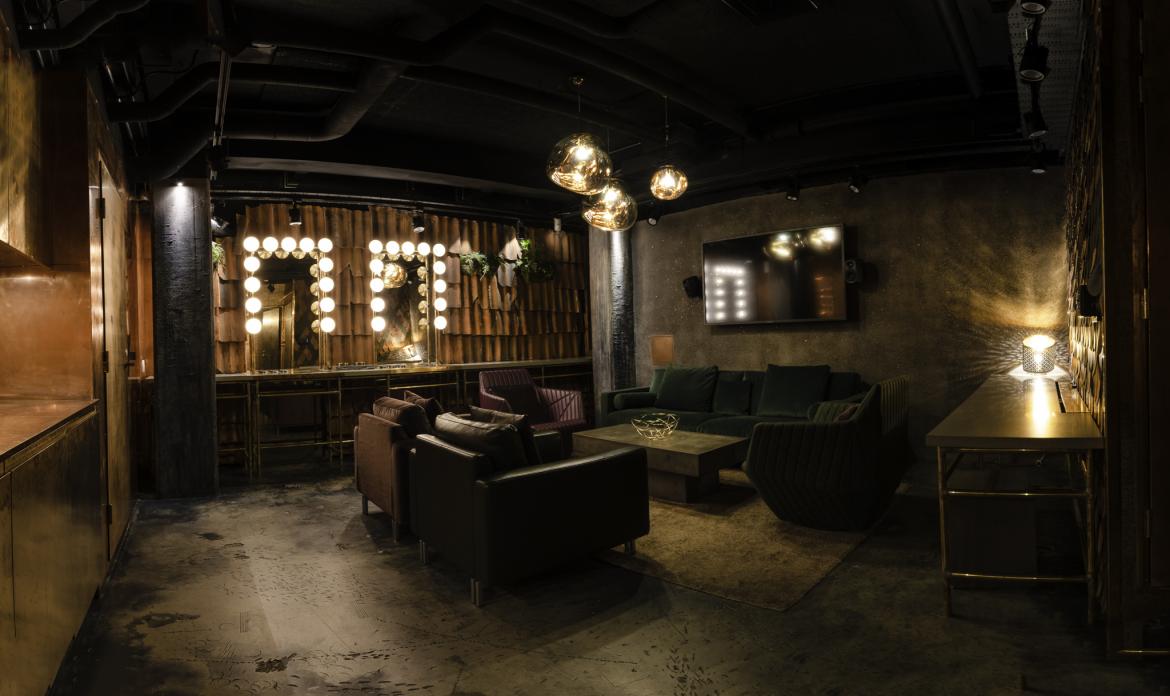
The carbon footprint of events is very much tied to the venue, many of which are rather large and consume enormous amounts of energy. Large scales, however, also have their benefits: even small changes have a big impact. Many large event venues in Helsinki have come a long way in terms of ecological thinking. Energy saving has infiltrated many functions, waste is thoroughly recycled and restaurants thrive on vegetarian and locally produced food. Sustainability actions may still come as a surprise to many visitors.

Messukeskus takes safety and responsibility to the next level following the pandemic
The sustainability work at Messukeskus Helsinki, Expo and Convention Centre, begins with its mission and values. In terms of environmental responsibility, Messukeskus is already very progressive, as it was the first event venue in Finland to be granted ISO 14001 environmental certification. According to Maria Mroue, Director of Marketing and Communications, its responsibility programme is based on the UN’s Sustainable Development Goals.
“We have analysed all 17 goals and considered how we can respond to them through our own actions. This has been really fruitful work that has broadened our responsibility and made it even more multifaceted. In addition to the environmental considerations, we are working to reduce discrimination and improve equality, for example. In addition, it has provided us with concrete targets,” Mroue says.
In order to meet the environmental goals, Messukeskus has implemented several energy saving programmes in which the targets have been clearly exceeded. The 2011–2016 programme aimed to save 9 percent in energy but ultimately saved 26 percent. Savings were made by developing building technology and monitoring energy use. LED lamps are mostly used for lighting, and taps are fitted with water-saving whirlpool nozzles.
In addition to saving energy, Messukeskus also produces renewable energy in cooperation with energy company Helen. In the summer of 2019, one of the largest solar power plants in Helsinki was installed on the roof of the building.
Recycling and waste are also important issues for Messukeskus. Already 99 percent of its waste is reused, and the recycling rate for events is also being further increased. “The intention is to recycle as many of the structures used at exhibitions as possible,” Mroue says. The restaurants at Messukeskus reduce food waste by reminding customers to take only as much food as they will actually eat. A zero-waste buffet is also available for corporate events.
For visitors to exhibitions, sustainable development and social responsibility are also visible through joint projects between the fair organisers and various organisations. “For example, in cooperation with UNICEF Finland, we helped provide a year of schooling for 24,000 children and the vital polio vaccine for 2.4 million children in 2019,” Mroue explains.
The corona pandemic in 2020 had a huge impact on the operations of Messukeskus, and many responsibility deeds have had to be put on hold until better times. According to Mroue, however, the most difficult year in the Expo and Convention Centre’s history has also given birth to much new. “For example, we have found a way to implement functional virtual and hybrid events, and we have also improved our own safety procedures.”
During the pandemic, Messukeskus has also provided its facilities for corona testing. Maria Mroue believes that event venues like Messukeskus have a moral obligation to provide these services. Close cooperation with public authorities has also strengthened during the pandemic, which is a clear benefit for visitors. Good hygiene is here to stay.
“We want to support stability and safety and be able to communicate safety procedures carefully to our customers as well. We have learned which things are most important for managing different epidemics, and this will continue to benefit us if we are faced by other threats. Ensuring safety is also an important part of our responsibility work,” Mroue confirms.

Finlandia Hall demonstrates responsibility in everything it does
Finlandia Hall is an iconic and popular event venue that has taken sustainable development into account already for a long time. Its environmental work began years ago and has been guided by various certificates and systems, such as ISO 14001, ISO 9001 and the EFQM quality certificate. The biggest challenges have been related to energy and water consumption. Through long-term efforts, consumption has been significantly reduced, despite increasing numbers of visitors to the 30,000-square-metre event venue.
“Our revenues have doubled since 2011, yet we have still managed to significantly decrease our energy consumption. An important role has been played by the ERP system we introduced in 2016, which helps us regulate the amount of light in each individual space,” says Minna Sauramaa, Marketing and Customer Experience Director at Finlandia Hall.
Finlandia Hall generates its own renewable electricity thanks to a solar power plant on the roof. The panels produce about two percent of Finlandia Hall's annual consumption, and on a sunny day in summertime the share can rise to as much as 25 percent.
When hosting large conferences and seminars, food also has a big impact on the carbon footprint. The restaurant favours organic and local ingredients, and even the smallest details make a difference. For example, the café’s smoothie straws are made of bamboo and last 150 uses. Also, different coffee varieties are tested in the kitchen in order to reduce the biowaste accumulated from coffee grounds. Ecological values are also reflected when catering for conferences, as both climate-friendly and vegan options are offered. Food waste is addressed through accurate measurements.
“It is important that the client provides us with accurate participant numbers. We also calculate the average consumption according to the share of women and men and whether it is winter or summer,” Sauramaa describes.
Due to the corona pandemic, virtual and hybrid events are very much here to stay. Finlandia Hall has made a big digital leap forward in terms of what kind of streaming is now possible. Among other things, a separate studio has been built. Many events are also implemented as hybrid solutions, with some people on site and others online. “Finlandia Hall’s premises are large and spacious, making it easier to ensure safe distancing. There are many benefits to this. In addition, our restaurant has developed a hybrid menu, which means that we can also supply some catering to customers who participate in events remotely,” Sauramaa explains.
Together with Helsinki Partners, the event venue is participating in the Virtual Helsinki project, which enables large virtual events to be offered to the international congress market. “These will be an absolute asset for us in the future. Some participants will be able to come to the venue, while some speakers and participants may be present virtually. This will reduce both emissions and travel time. It is very much the future: when it is no longer necessary for everyone to fly to the venue to attend,” Sauramaa says.
Finlandia Hall has been undergoing a major renovation since 2022, where the venue has been completely closed. Surface materials will be renewed, and energy efficiency will also be improved. Nevertheless, Finlandia Hall’s operations will continue uninterrupted, as a temporary event space, Pikku-Finlandia (“Little Finlandia”), has risen next to the current building on the shores of the Töölönlahti bay.
Pikku-Finlandia is an energy-efficient space built of wood, which has been the base of operations during the renovations. Once the renovation is complete, the building can be used as a kindergarten or school. Here too we are operating in accordance with the principles of sustainable development.”

G Livelab is a fair live music club
For G Livelab, sustainable development is both an operating model and an area for continuous improvement. The chain has two live music clubs, in Helsinki and Tampere. “There is no other option. We take responsibility into account in all our activities, from planning gigs to materials and even the drinks list,” says CEO Tanja Douglass.
Helsinki's G Livelab was designed so that the interior would still be relevant even after ten years. High-quality, durable and recycled materials were used in the renovation. “The club’s floor is made of used bricks, and used tiles can be found on the staircase. There are even some old railroad tracks on the floor,” Douglass says.
Reducing electricity consumption at the high-tech club has been a challenge, but the Think Sustainably service inspired G Livelab to switch its electricity contract to renewable wind power. "The price was actually cheaper, which was a surprise to us,” Douglass admits. In addition to environmental issues, G Livelab also takes care of its social responsibility. According to Douglass, diversity and equality are the guidelines whenever planning gigs. “We strive to be fair in the kind of remuneration paid to musicians. Our starting point is to work responsibly as an employer of artists.”
However, the corona pandemic meant difficult times in terms of employing both artists and club staff. Douglass says that efforts were made to keep the clubs in Helsinki and Tampere open whenever possible with regard to restrictions, and of course with limited audience numbers.
G Livelab is very strict about hygiene, and this is also communicated clearly to customers. Tickets can be cancelled even at the last minute due to illness, and the restaurant's orders are handled directly from the tables using an app. “We happen to have an app company in the same group, so we have created a system that is just right for our use. It has worked really well, and we have even sold the app to others as well. It will certainly continue to be used after the corona crisis.”
Also new since the pandemic is the higher quality of livestreams. According to Douglass, this has become a product that can also be sold in the future as part of corporate events. Otherwise, she does not believe that livestreams will ever replace live performances – at least not entirely. “People are not willing to pay very much for livestream gigs, especially since they have been offered for free. On the other hand, the good thing about livestreams is that they can reach people who would not otherwise be able to attend in person, for example for health reasons or because they live further away. So in some form, livestreams will certainly be used also in the future.”
G Livelab intends to continue developing its corporate responsibility work. Douglass has been involved in discussions and seminars organised by Finnish Innovation Fund Sitra to create more sustainable ways of operating in the music industry.
“I think in the future, smaller local gatherings will be emphasised rather than big festivals. They are both safer and more sustainable.”
